
9 minute read
African Gold Group
The next platform for growth in West Africa
AFRICAN GOLD GROUP
Advertisement
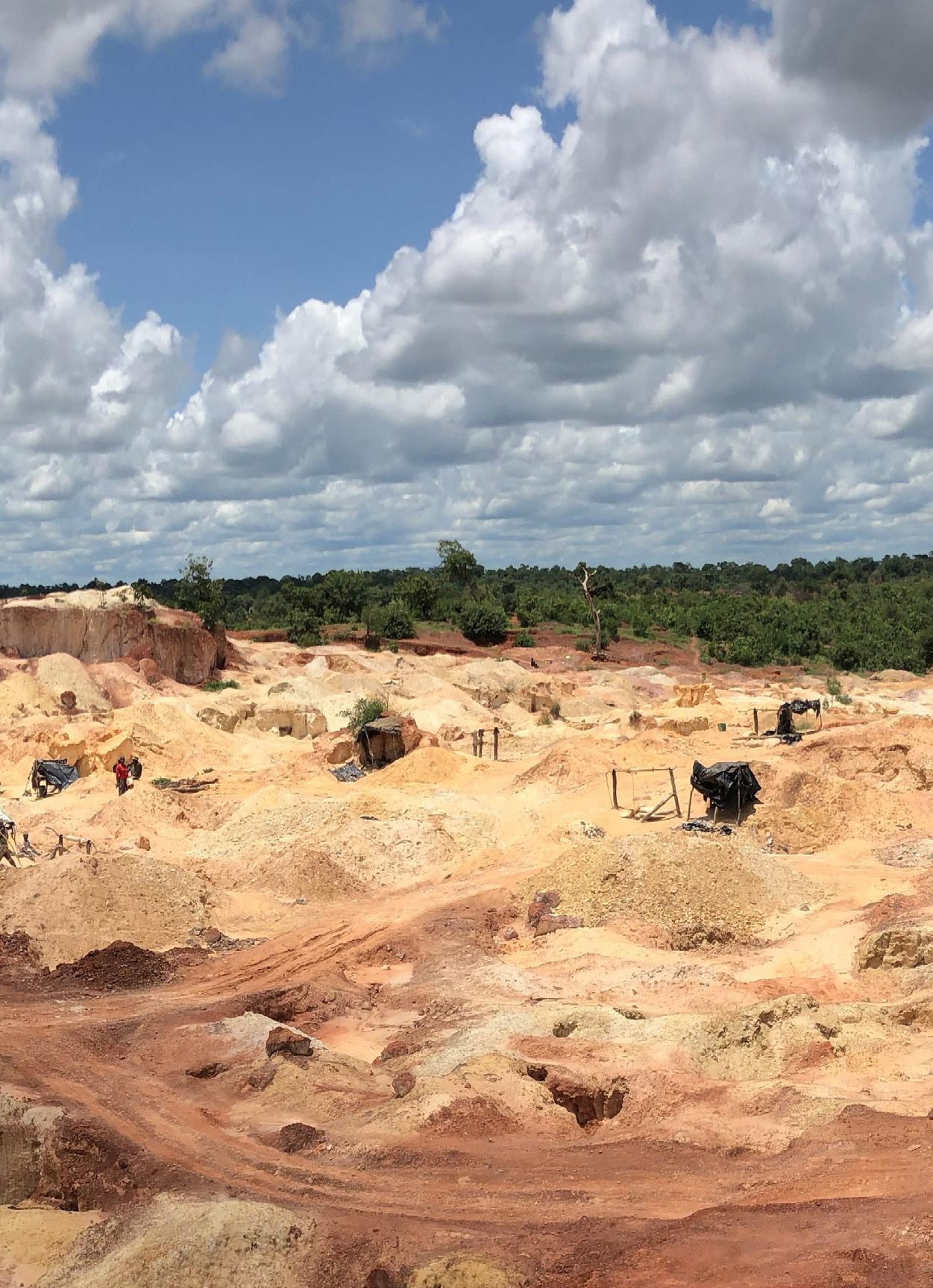
The next platform for growth in West Africa
African Gold Group (AGG) is a West Africa-focused Canadian exploration and development company listed on the TSX Venture Exchange, with a primary focus on the Kobada Gold Project in Mali – a low cost operation with 122 km² of prospective exploration concessions in the prolific Birimian Greenstone Belt. The company recently appointed a new corporate leadership pairing in Stan Bharti and Danny Callow, two seasoned mining engineers with a range of complementary skillsets. Throughout his career, COO Callow has taken through to construction several greenfields and brownfields operations across Africa for large corporates, while CEO Bharti has garnered a reputation for developing undervalued assets over the last 30 years.
“Stan had a couple of very good hits in the West African gold space,” says Callow. “He’s highly entrepreneurial, a great mentor and likes to let the operational guys get on with their work. Coupled with myself on the operational side, I think we make a very good CEO/COO team.”
After coming on board in August, Callow recommended initiating an update to the 2016 feasibility study for the Kobada project to include additional data from drilling, geological trenching and regional geology work, ahead of a bankable feasibility.

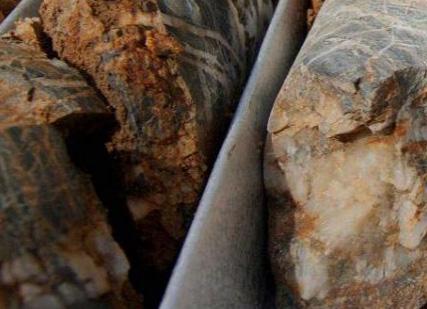
The original feasibility indicates a total resource of over 2 million ounces (Moz) at Kobada, however this estimation only accounts for drilling from a 4 km portion of the main shear zone of the property, which is about 12 km in length. “That tells me that we have enough to start, but we also believe there is a lot more in the ground, which can give us a phased approach to growing this project from a 50,000 oz per annum operation to 100,000 oz and beyond,” Callow declares. The phased approach Phase 1 of the pathway to production is designed to enhance confidence in resource modelling, mining engineering and advanced metallurgical test work, and encompasses an infill drilling campaign that resembles a significant opportunity to upgrade the reserve at Kobada. “One of the things I’ve been pushing for is to undertake this final phase of drilling before moving to construction so we can upgrade the resource where we can and make sure to have incorporated all of the geological information available to us. This will give us a much better understanding of the structural geology, which is important when we go into the design of the open pit and the type of crushers and mills that we need.” The processing method also needs to be confirmed by AGG, which was seen in the
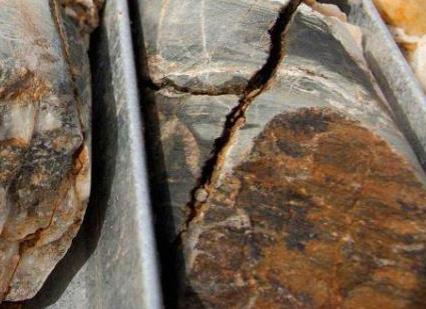
2016 study to be gravity concentration only. The company is currently undertaking test work to ensure all stratigraphic boundaries across the orebody are incorporated and amenable to low cost gravity concentration.
Moving into Phase 2, AGG will deliver a bankable feasibility by April 2020, which will identify an accurate capital costing for the project along with all key long lead items and other crucial aspects of the plant design. Phase 2 will also usher in an updated environmental social impact assessment (ESIA).
“I am pushing for the ESIA to be upgraded to IFC and World Bank guidelines. Even though that’s not a requisite for Mali, as a listed company out of Toronto I think it’s an important baseline to have.”
The current ESIA has already been approved by the Malian government and the Kobada mine is fully permitted, so the Phase 2 drive is all about optimising the existing metrics. In fact, once the bankable feasibility is delivered in April, AGG can theoretically push the button on construction of the mine.
“I have always worked on the philosophy that when you have enough resource to start construction of a mine, you should look at a phased approach. We are looking at a 50,000 oz Phase 1 and then an additional 50,000 oz Phase 2.

“The advantage of that is the whole plant is designed in a modular fashion so you can easily add to it. At the same time, you can often fund Phase 2 with cash flow from Phase 1, and that’s what we’ve done very successfully in the past.”
This approach makes perfect sense at the Kobada mine, where there is significant opportunity for resource growth through additional exploration. Looking to the longer term, Callow sees a third phase taking place that will poke holes in some of the other shear zones within the licences that are prospective for mineralisation. “My opinion on exploration is you should never stop drilling while you have good prospects. If you can drill enough to replace every single oz that you take out the ground with another oz, you extend the life of mine and also give yourself the opportunity to grow the size of the production.”
Local procurement Callow and Bharti believe in utilising local partners as much as possible when developing projects, particularly in Africa where there is an onus on mining companies to ‘do good’ by supporting local
responsibility (CSR) in the Kobada region, and these actions have been a key focus for Callow during the last 12 years of his career.

“CSR is part of our social licence to operate and very often can determine the success or failure of a project. If you think that you can just come into a country, set up base, take all of the resources out the ground and 15 years later leave without leaving a footprint behind, then you will fail.
“In its simplest form, CSR is looking to identify and employ skills from the local community, because what that does is bring money into the local community. The community then begins to improve and develop, and it becomes a self-sustaining model.”
supply chains, which in turn supports key stakeholders in the project vicinity. At Kobada, AGG has used a local Malian driller and a local construction company for the camp, among other in-country suppliers and contractors. The company’s EPCM partner has been a rare exception to the rule, coming out of South Africa but boasting a strong reputation for delivering gold projects in West Africa. Local procurement and community uplift form key tenets of AGG’s corporate social The COO describes the snowball effect precipitated by mining companies employing locally and supporting local enterprises; These small-scale ventures start bringing in more materials and grow into larger enterprises providing additional goods and services, which leads to the community becoming less dependent on the mine. Another vital part of AGG’s CSR strategy centres on maintaining full transparency with stakeholders in the local communities through regular communication. This consultation is as much about keeping locals updated of the latest project updates, as it is about discovering what the local communities need from AGG in its role as a steward.
“Rather than just assuming what is needed by the community, we sit down with them, explain how much is in the CSR budget and ask what they would like us to get involved in.
“That way we can deliver sustainable projects, because at some stage the mine is not going to be there anymore, but if we’ve got thriving agriculture and other little businesses, when we leave those guys can carry on.”
Sitting down with the chief Grounding this point in the context of the Kobada project, Callow refers to a recent meeting with the Kobada Chief Dantoume Diawara and his village elders to discuss the progress of the project and AGG’s plan moving forward.
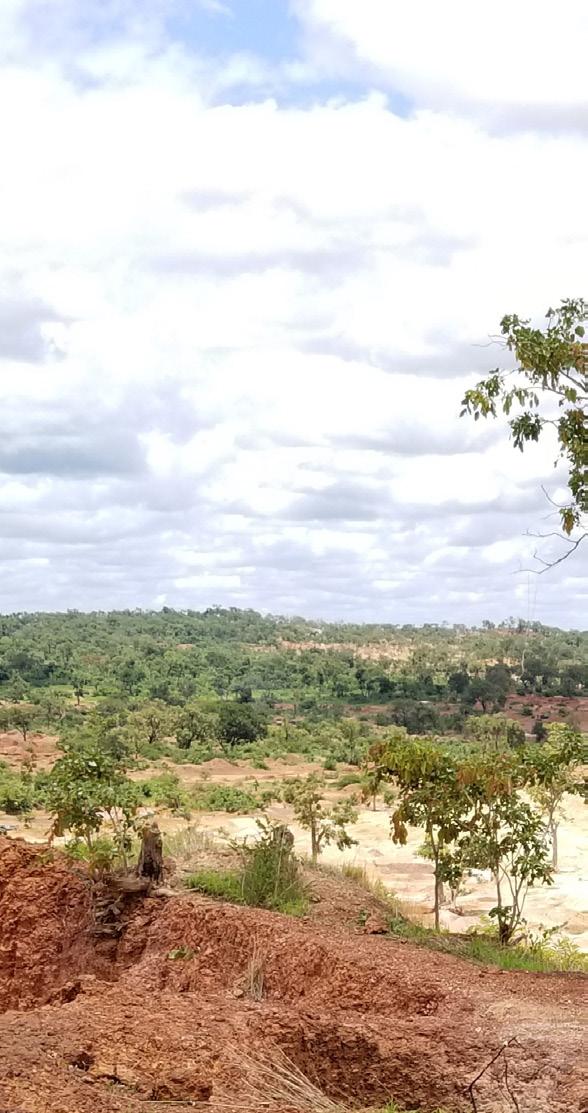
“Clearly this was the first time this chief has experienced someone sitting down with him and explaining what we’re going to do and when. I outlined our commitments to local employment and local procurement and pledged to visit him on a quarterly basis to provide key updates.”
In turn, the chief thanked Callow for employing 12 semi-skilled labourers from the village to help with clean up and preparation for the upcoming drilling campaign, and underlined his commitment to managing the relocation of artisanal miners around the Kobada concessions.
“I think that meeting with the local people in a very informal way, not sitting around a boardroom table with a PowerPoint presentation, is so important. Instead we sat on plastic chairs with the chief on his veranda and began a two-way relationship, instead of just telling him what we will do.”
In conclusion, AGG is running full steam towards a bankable feasibility for the Kobada project in April next year, at which point it will be ready to commence construction of the mine. But, the development doesn’t end

there, as the company’s phased approach will see it add increased capacity through subsequent resource growth.
AGG is also interested in additional opportunities across West Africa – one of the

world’s most prospective regions for gold exploration right now. The company would certainly look to consolidate into other West African jurisdictions should any opportunity fall in the right investment bracket.
a b j
TECHNICAL EXCELLENCE & SURETY IN DELIVERY
BATTERY METALS

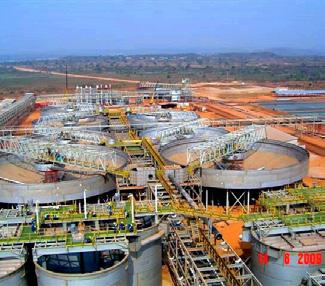
Lycopodium is an internationally recognised engineering and project delivery group servicing global mineral resource projects and associated mine infrastructure.
Lycopodium’s capabilities extend worldwide and across project size, process complexity and commodity.
Coupled with our reputation in precious and base metals, we have now grown to be a widely recognised services provider to the iron ore, battery metals and industrial minerals industries.
INDUSTRIAL MINERALS

Our demonstrated commitment and proven ability to safely deliver projects on schedule and on budget, quickly ramping up to meet project performance targets, is the cornerstone of our success and repeat client base.
Lycopodium has a diverse team of Industry experts spanning a network of global offices, delivering fit-forpurpose and innovative solutions across all commodity types.
PRECIOUS METALS

BASE METALS
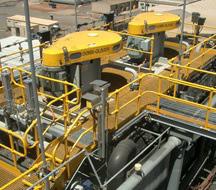

IRON ORE

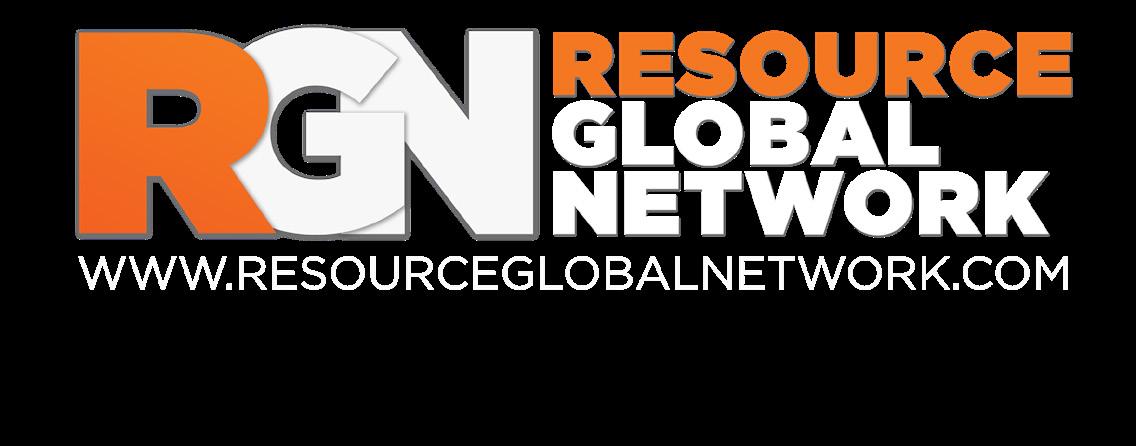

“It was a pleasure working with the RGN team. The entire process - from the initial interview to the layout and finished piece - was seamless and professional. ” Orlee Wertheim Head of Business Development, Global Mining, Toronto Stock Exchange TSX Venture Exchange










